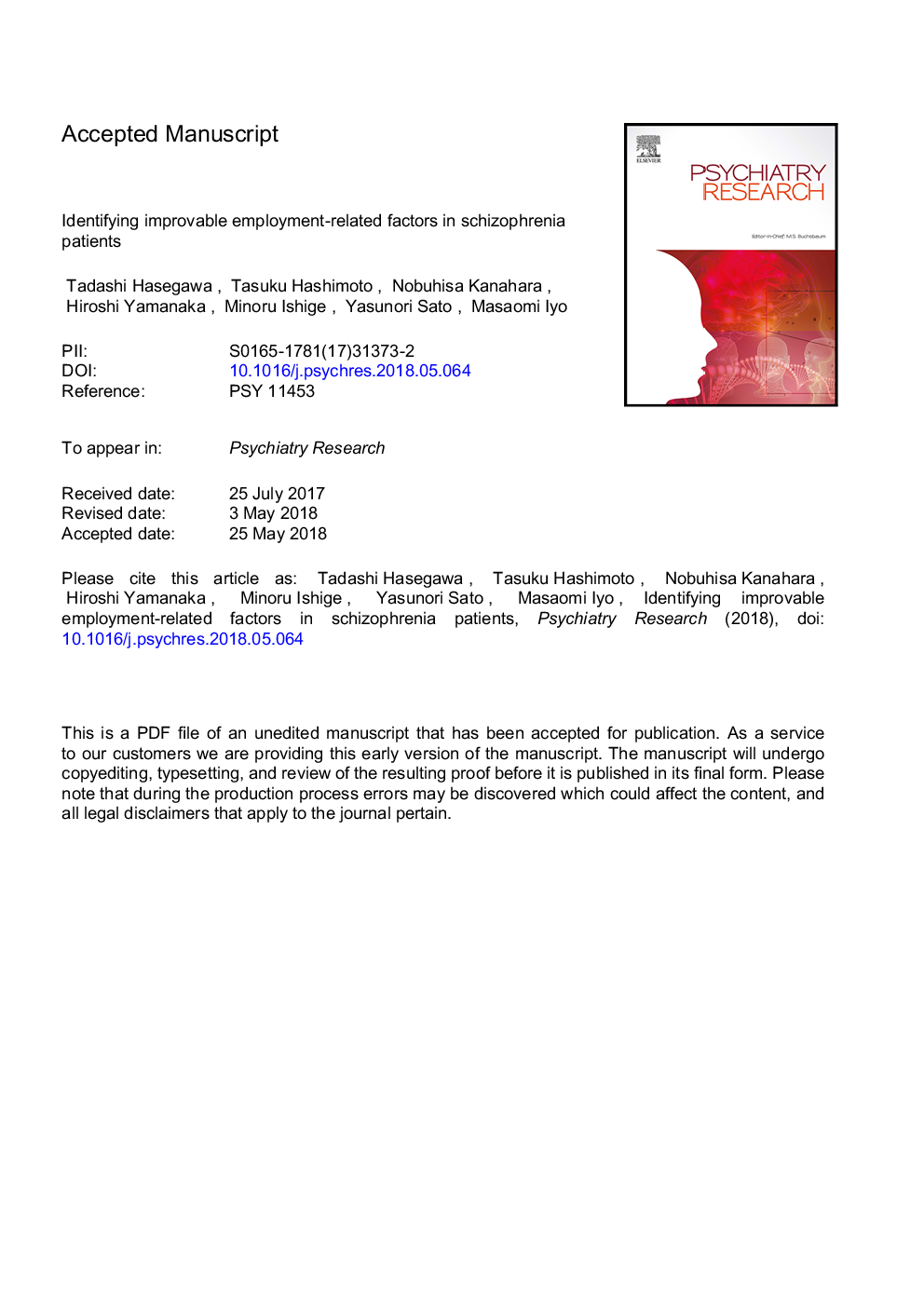| Article ID | Journal | Published Year | Pages | File Type |
|---|---|---|---|---|
| 6811303 | Psychiatry Research | 2018 | 50 Pages |
Abstract
Although many studies report various factors related to future employment of schizophrenia patients, few identify the treatable or improvable ones. The responses to the first year of treatment and daily antipsychotic drug doses may be the treatable and improvable factors. We surveyed 235 schizophrenia outpatients in three facilities, of whom 129 and 106 were employed and unemployed, respectively. Through face-to-face interviews and medical record reviews, we investigated symptomatic and social functioning responses to the first year of treatment using the Global Assessment of Psychopathology Scale (GAPS) and the Social and Occupational Functioning Assessment Scale (SOFAS). We investigated daily antipsychotic drug doses and other clinical assessments at the interview time. Finally, we used multivariable logistic regression analysis. SOFAS-measured improvements in the period 6 to 12 months after beginning treatment and daily antipsychotic drug doses equivalent to less than 600â¯mg of chlorpromazine were identified as an employment-related factor, but GAPS-measure improvements were not. Social functioning improvements in the period 6 to 12 months after beginning treatment and low-to-moderate daily antipsychotic drug doses were detected as employment-related factors, suggesting that early efforts to improve social functioning and optimize antipsychotic drug doses could lead to future employment for schizophrenia patients.
Related Topics
Life Sciences
Neuroscience
Biological Psychiatry
Authors
Tadashi Hasegawa, Tasuku Hashimoto, Nobuhisa Kanahara, Hiroshi Yamanaka, Minoru Ishige, Yasunori Sato, Masaomi Iyo,
